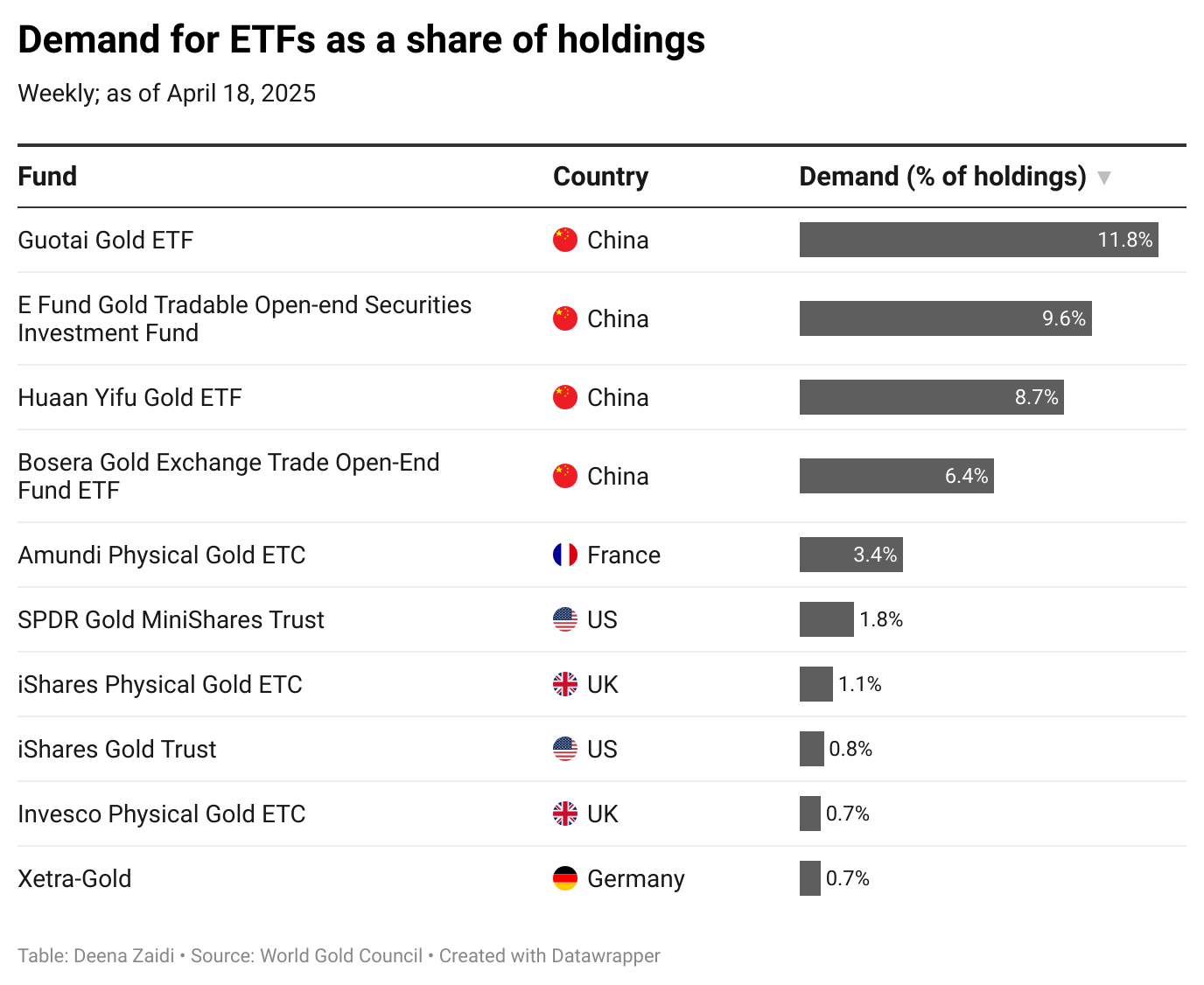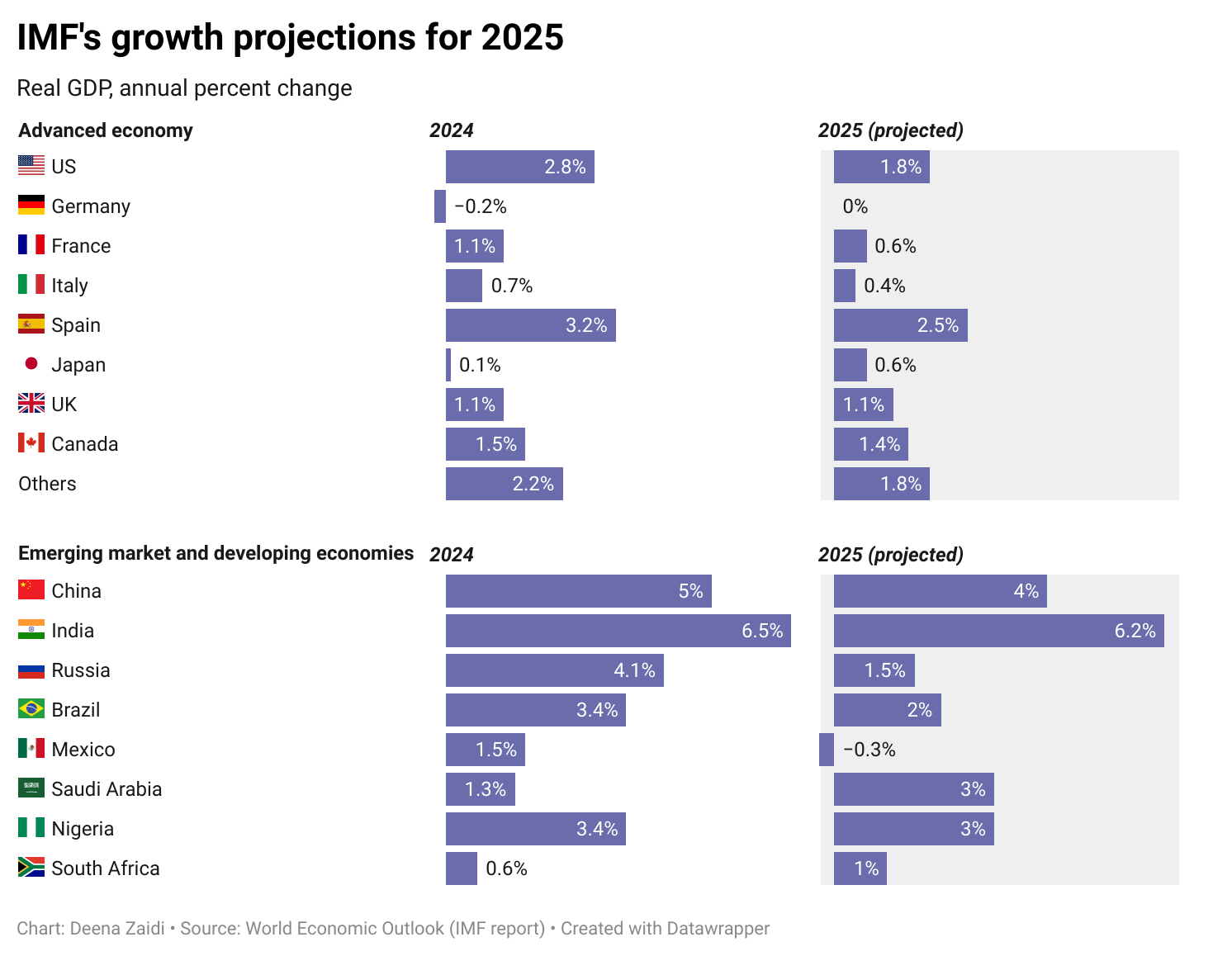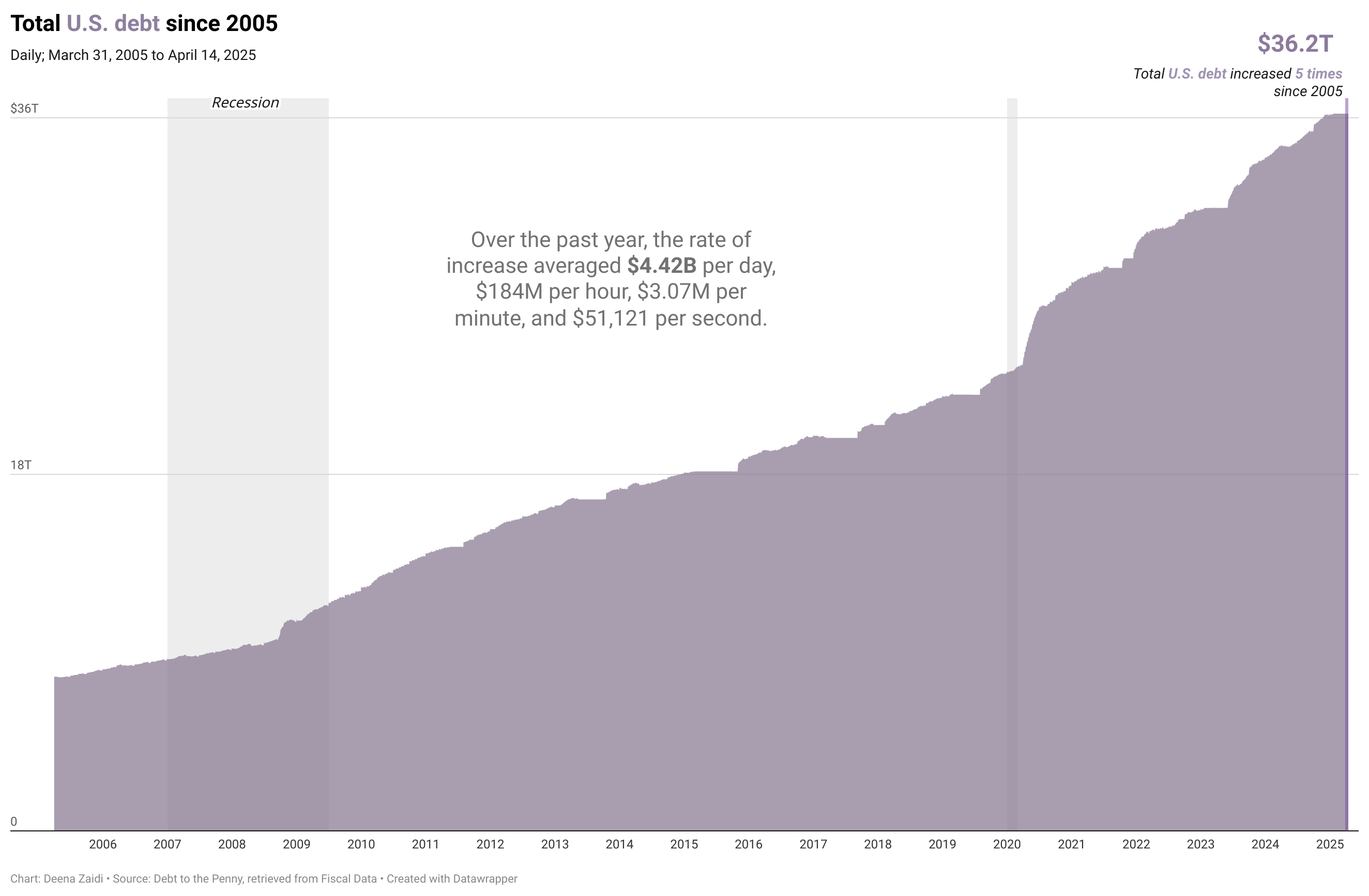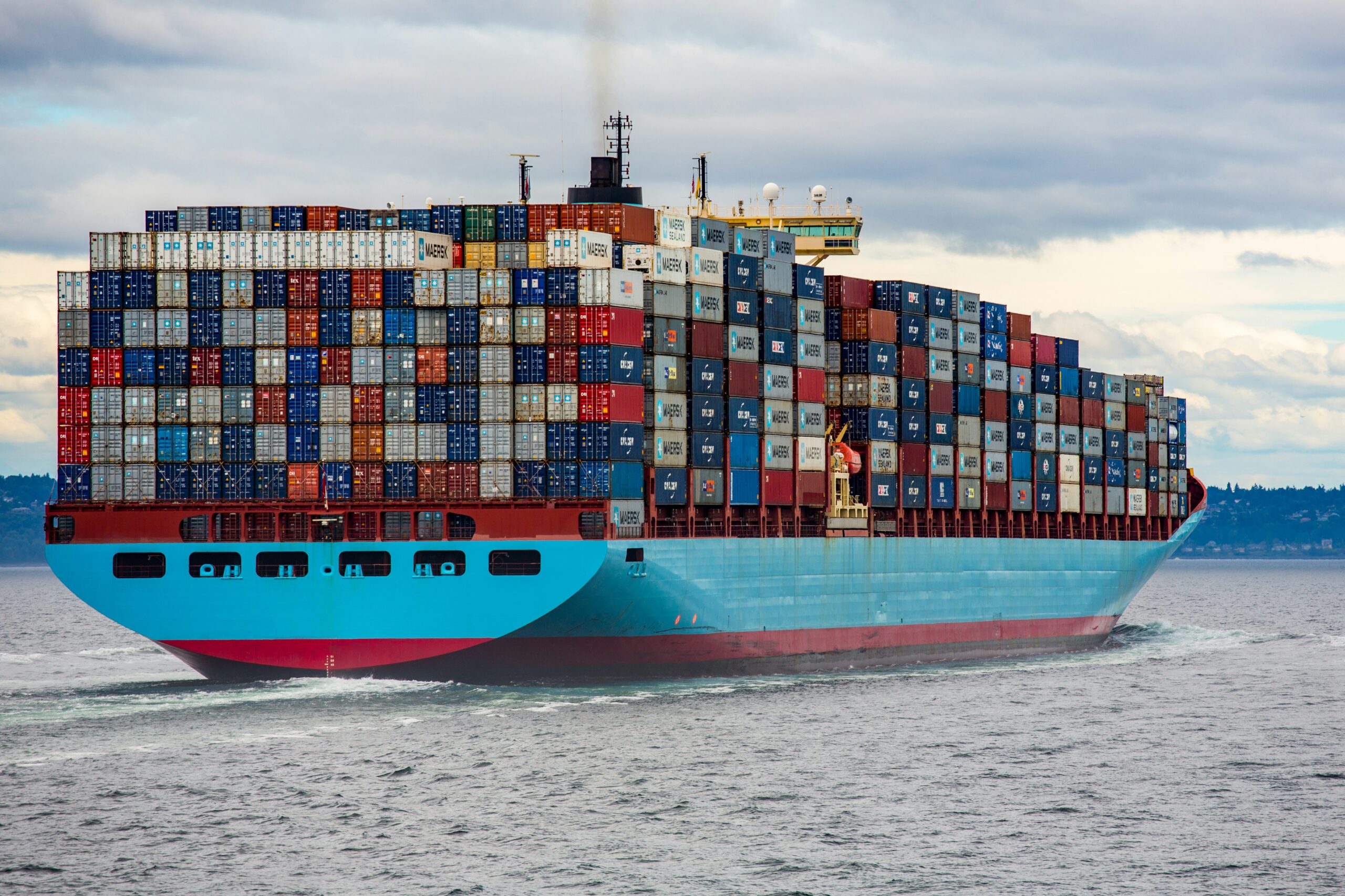China is weighing plans to establish overseas warehouses for the Shanghai Gold Exchange, in a move to boost international settlement of yuan-denominated gold contracts and expand the global use of its gold benchmark.

Data and Financial Journalist

China is weighing plans to establish overseas warehouses for the Shanghai Gold Exchange, in a move to boost international settlement of yuan-denominated gold contracts and expand the global use of its gold benchmark.

IMF issued its steepest downgrade for the U.S. among advanced economies, citing rising tariff-related uncertainty and a heightened risk of recession. Global economic sentiment has dimmed, with the IMF now projecting a 37% chance of a U.S. downturn—up sharply from 25% just months ago.

Foreign investors held $8.8 trillion in U.S. Treasuries as of February 2025—a 10.2% increase from a year earlier, according to the recent U.S. Treasury data. Japan, China, and the U.K. remain the top holders of U.S. debt. Two charts show the major foreign holders as the national debt hits $36.1 trillion.

President Trump’s new tariffs hit Asian exporters the hardest. With a 90-day pause in place, countries like Vietnam and Cambodia seek trade solutions amid rising U.S. trade deficits.